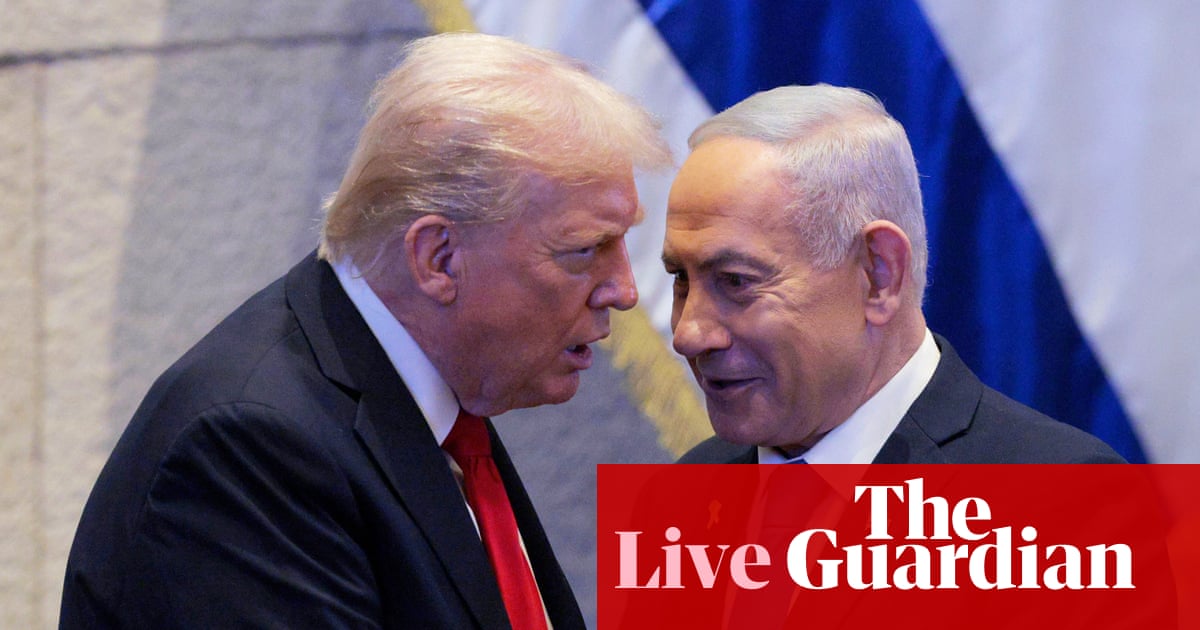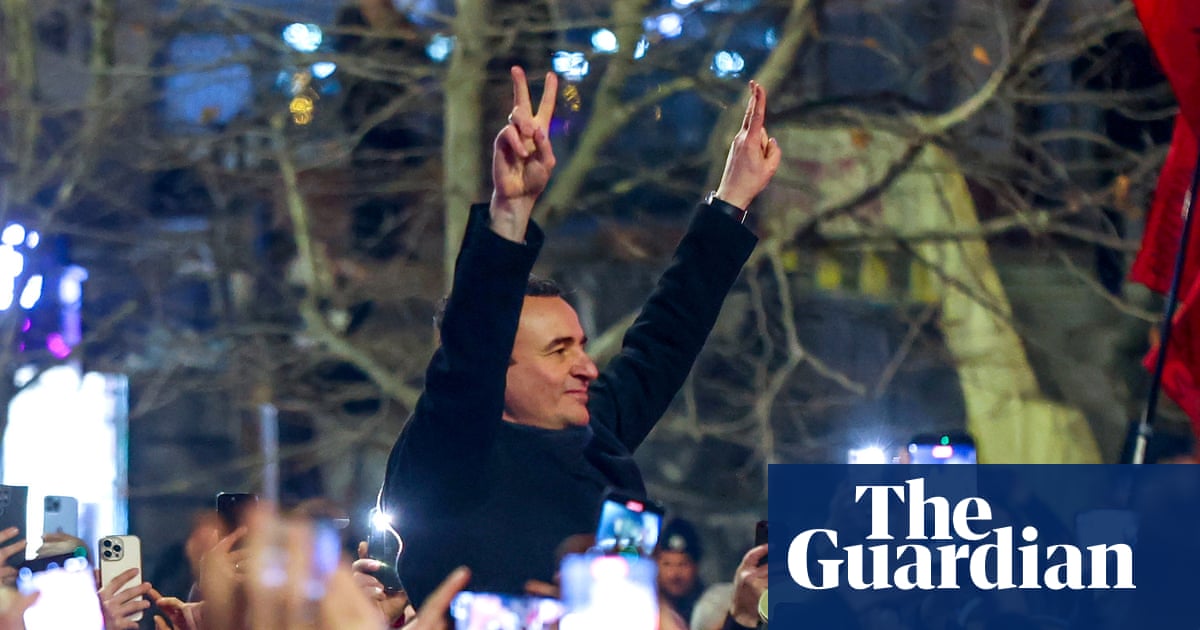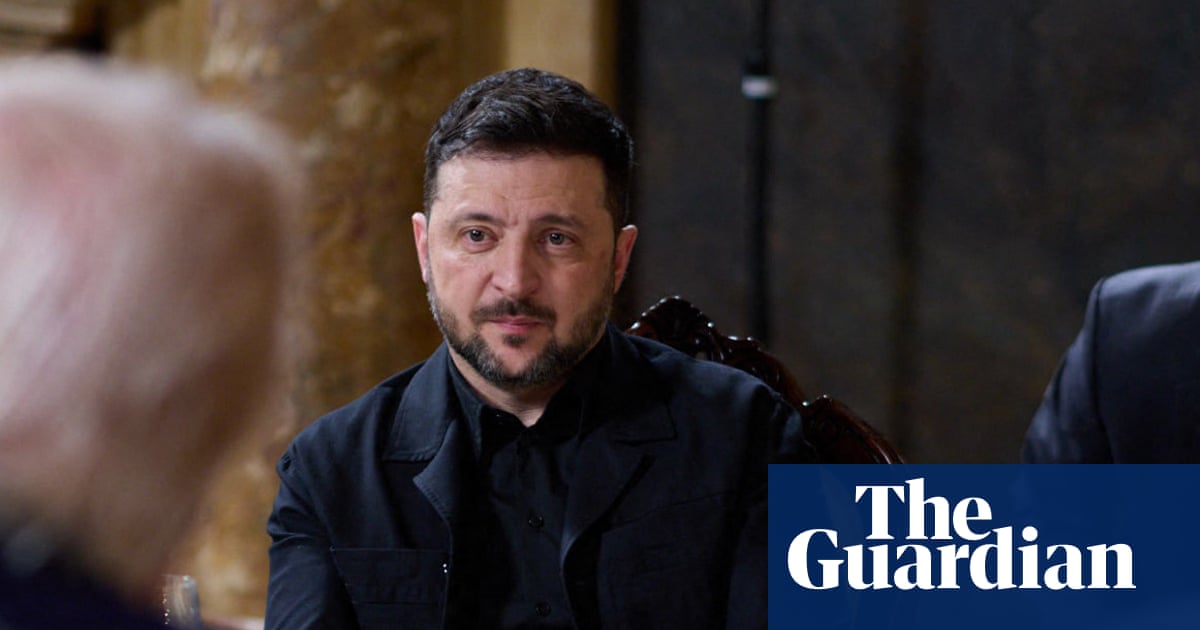When Ursula von der Leyen arrived in the vast semi-circle debating chamber in the European parliament in Strasbourg, she greeted MEP leaders of some of Europe’s political groups warmly. Wearing a trim khaki-green jacket, the European Commission president smiled, shook hands and exchanged air kisses with some of the politicians, who had front-row seats for her annual state of the union address.
The hour-long speech on Wednesday had a stark message: Europe must fight for its place in an “unforgiving” world, facing major powers that are either “ambivalent or openly hostile” towards it.
Only minutes after she sat down, she was hearing equally tough responses. “We are losing Europeans; we’re not taking them with us. We’re weak when they want protection,” Valérie Hayer, leader of the centrist Renew group, told her. “The summer was very painful,” said Green leader Bas Eickhout. “Europe has entered a world of power, yet we are still playing chess in a boxing match.”
These were more than routine rhetorical flourishes. This summer was one of harsh realities for the EU. The trade deal von der Leyen signed with Donald Trump in July was an unequal bargain, decried by right and left as a humiliation for Europe. Russia escalated its attacks on Ukraine, while EU leaders were left wincing at the spectacle of Trump’s red carpet welcome for Russian president Vladimir Putin in Alaska. Israel’s war on Gaza continued relentlessly, killing more than 64,000 people and bringing famine to the strip, while EU countries were unable to agree on modest sanctions against Benjamin Netanyahu’s government. Meanwhile, forest fires, exacerbated by the climate crisis, broke records as flames consumed 1m hectares across affected countries, an area equivalent to around one-third of Belgium.
Surveying the season’s political news, Mario Draghi, the former Italian prime minister who is widely revered in Brussels, said events had “swept away any illusion that economics alone could ensure geopolitical power”. Europe, he said, was “ill-equipped in a world where geo-economics, security and the stability of supply sources, rather than efficiency” shape international trade relations. He said the EU had to “adapt to the existential demands of its time”.
Europe’s painful summer has dented von der Leyen’s reputation. She arrived in Brussels in 2019 promising to lead a “geopolitical commission”, making the EU a foreign policy player, rather than simply a market. This week, an opinion poll in the EU’s five largest member states (Germany, France, Italy, Spain and Poland) showed that 52% found her trade deal a “humiliation”, while 75% thought she had defended European interests “very” or “fairly” badly.
Anna Cavazzini, a Green MEP who chairs the European parliament’s internal market committee, has also encountered such negative verdicts. The message that a “strong EU” would defend European interests against “a bully on the other side of the Atlantic” had “really resonated with my voters, who are in eastern Germany and not the biggest fans of the EU, usually”. The outcome left them disappointed, she told the Guardian.
Cavazzini does not fix all the blame on the commission, saying that many EU governments shunned more assertive stances to Trump’s tariff threats, while seeking to protect favoured industries. Member states “were holding the commission back”, industries had their own interests in mind and Europe was not “fully united behind the idea that you have to stand up for Trump,” she said.
Under the deal announced at the US president’s Turnberry golf course, the EU agreed to eliminate tariffs on many US goods, while accepting 15% duties on its products and 50% on steel. Von der Leyen, who has long argued for more clean homegrown energy, promised Europe would buy $750bn (€640bn) of US liquified natural gas, oil and nuclear products by 2028.
In Strasbourg, von der Leyen came out fighting for what she called “the best possible deal out there” that provided “crucial stability in our relations with the US at a time of grave global insecurity”. European officials argue that the deal was necessary to safeguard jobs, but also US involvement in defending Ukraine. “[Is] what happened during the summer something that will make Europeans proud?” asked one senior EU official. “No. But this doesn’t mean that the reaction and the management of the situation was not intelligent. We are not yet the defence power that we should be. And that, of course, means that there are still vulnerabilities that we need to take into account.”
In contrast, von der Leyen won support for her firmer stance this week on the Gaza conflict – although critics also said it was too little, too late. The commission president said she would freeze European funds for Israel’s government and propose sanctions on extremist ministers. But she still has a lot of work to convince critics about her broader strategy.
after newsletter promotion
“Europe is disappearing,” contends Chloé Ridel, a French Socialist MEP, tasked with writing her party’s manifesto for the 2027 French presidential elections. “We are disappearing because we are weak in front of Trump. We cannot support Ukraine on our own in front of Putin. We do nothing against the Israeli government in Gaza.” She contrasted the management of recent months unfavourably with von der Leyen’s first term, when the EU leader was widely seen to have taken bold decisions on Covid vaccines and climate action.
The critique from the left is sharpened by a breakdown in trust between the Socialists and European People’s Party, the two largest groups in the European parliament, who have a vital say over whether the commission can pass its legislation. Both accuse each other of undermining the parliament’s slender pro-European forces, at a time when nationalists and the far right hold greater sway than ever in the institution.
In a further sign of pressure, von der Leyen faces two potential motions of censure in the European parliament: one from the far right, another from the radical left.
Both groups said this week that they have the necessary 72 votes to table a motion of censure, which in theory could trigger the resignation of the commission. That outcome has been ruled out by the more numerous pro-EU groups, whose votes would be needed to oust the EU executive. But it is a sign of Europe’s deep polarisation in turbulent times.

 3 months ago
72
3 months ago
72

















































